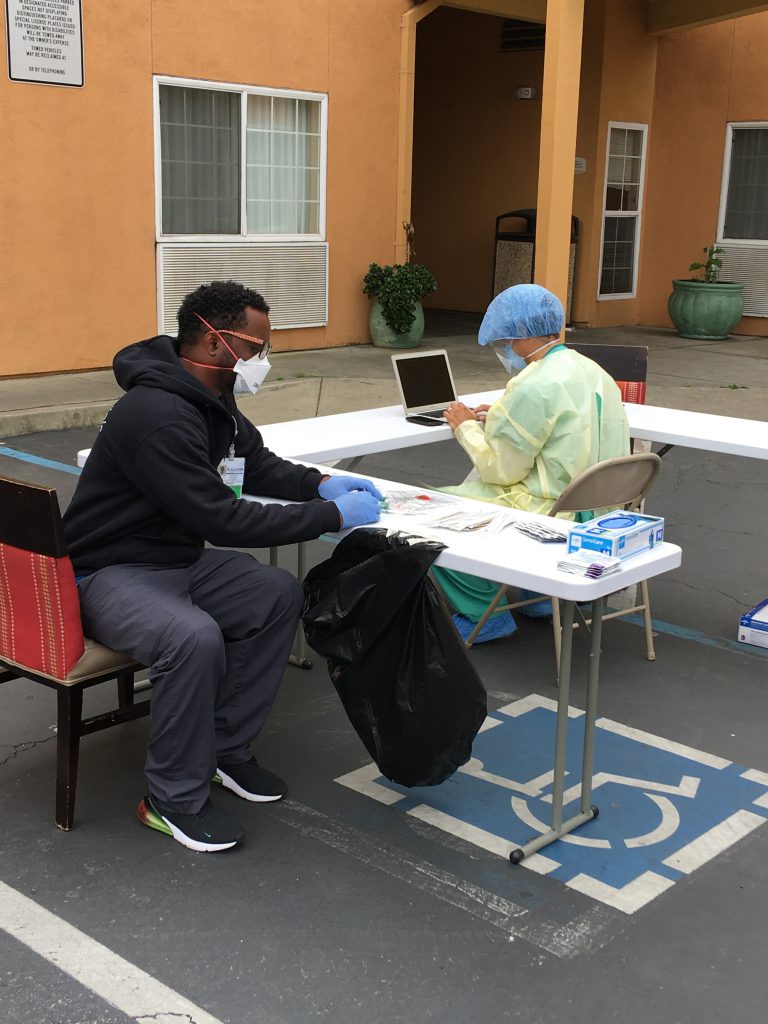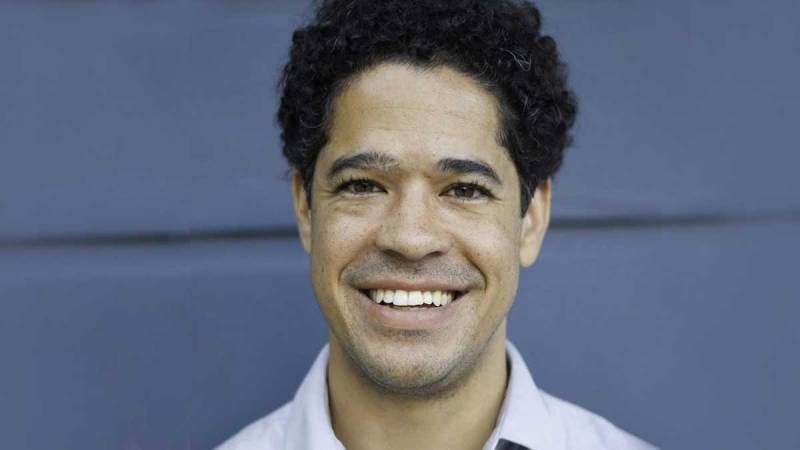As the Medical Director of Homeless Services for the Alameda Health System and the Chief Clinical Officer with Health Leads, Dr. Damon Francis has his hands full.
Before the pandemic, Dr. Damon performed health checkups, tests, and provided resources for people living without shelter and those living with HIV. This year he’s taken on treating people living with the coronavirus and informing the public on how to prevent its spread.
When he talks about quelling the spread of COVID-19, Dr. Damon relies on something he learned while working with people living with HIV/ AIDS: you can’t demonize human behavior.
He believes that people are going to be people; he just wants them to move through life in the most informed and healthy way possible.
So, when it comes to the ongoing conversation about gatherings in public spaces (take, for example, Oakland’s Lake Merritt), Dr. Damon doesn’t condemn people. Instead, he asks them to socialize in the healthiest manner: wearing masks, washing hands, staying more than six-feet apart; he also suggests looking at the Alameda County Health Department’s page for further information.

Below are lightly edited excerpts of my conversation with Dr. Damon Francis.
Pen: Do you have any words of wisdom to people still gathering? You know, I know it’s popular just to hang out by the lake and stuff like that.
Dr. Damon: You know, one of the things we’ve learned a lot through HIV medicine is not to demonize core human behaviors, you know? We want all of our patients to have an excellent sex life, that’s kind of core to what we do in HIV medicine. And then we talk about, OK, how can it be done in a healthy way?
And so I think gathering is the same thing. I’m not going to demonize gathering, people need each other. And, you know, that’s just going to always be true of human beings. I think doing it outside is particularly helpful. We’re seeing that even that six feet of social distance that’s recommended if you’re inside, depending on airflows, the virus may travel 15, 20, 30 feet even. So if you’re outside, you’re socially distant, six feet and you’re wearing a mask, and then you’re limiting the number of people that you gather with, you don’t want to gather in big crowds. You don’t want to gather with different groups of people all the time and be the person who’s like Typhoid Mary, spreading it from one group to another group or anything like that. You want to make sure that they’re also doing the right things to protect themselves.
Pen: I imagine that there’s got to be long term effects in this. I know personally, I’ve been drinking a lot more and I just keep joking myself. Like 20 years from now, it’s gonna be a knock at my door and my liver being like, ‘you remember, 2020? you messed me up.’ So like the long term impact of what’s going on, what do you what do you foresee?
Dr. Damon: Man, there’s this great article from this listserv I’m on with people who do global health work. Someone sent it out.
It’s written by an Alaskan native. I think in the ’60s, he became an alcoholic and he lost his son, in his mind, in relationship to his alcoholism. And he wrote this lengthy essay, maybe 30, 40 pages that just breaks down the complete destruction of his culture by a flu epidemic. And then he traces his own personal life and what’s happened with epidemics of alcoholism in his own community back in this profound way to what happened with the flu virus when it hit. I think you’re absolutely right to talk about these effects, not even just over the course of 20 years of a single lifetime. We’re gonna be asking ourselves these same questions about intergenerational dynamics. You know, what’s happened to Black culture as a result of what happened in the coronavirus? And I think some of those effects may be positive. Some of those effects may be negative. But, as you’re pointing out, we don’t necessarily know yet. We just know there are going to be some effects.
Pen: You have the knowledge, you do the the frontline work, and I imagine it has to have some type of weight on your shoulders as well.
Dr. Damon: You know what? It hasn’t been a new weight from coronavirus, honestly, these disproportionate deaths among Black people, among people of low social status around the world, no matter where you are. If it’s the Maori in New New Zealand, it’s the same story that we have as my people here. And some of the solutions are obvious, right? We need to equitably give people the resources you need to be healthy. My frustration with the reality of us creating a society that’s so far away from that. I’ve lived with that frustration for so long that, to me, not a lot feels new in the coronavirus epidemic. And if anything, the feeling I have more on a day to day basis is that finally, other people are waking up to this, like we’re about to do something about it.

Rightnowish is an arts and culture podcast produced at KQED. Listen to it wherever you get your podcasts or click the play button at the top of this page and subscribe to the show on NPR One, Spotify, Apple Podcasts, TuneIn, Stitcher or wherever you get your podcasts.


